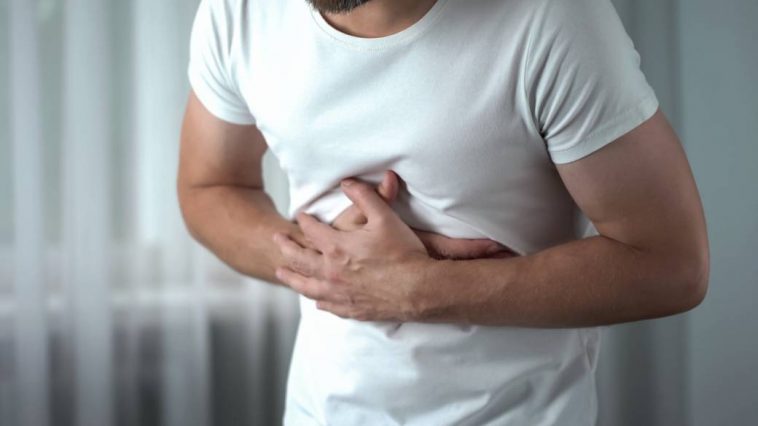You have a stomach ulcer if you get open sores in the lining of your stomach or the upper part of the small intestine.
That happens when your stomach acids etch away your digestive tract’s protective layer of mucus. You may have no symptoms, or you may feel discomfort or burning pain. It can lead to internal bleeding, which sometimes can mean you’ll need blood transfusions in the hospital.
You can have two types of peptic ulcer disease.
Gastric ulcer. You get this on your stomach lining.
Duodenal ulcer. This appears at the top end of the small intestine, an organ that digests and absorbs much of the food you eat.
You can have ulcers at any age, but your chances go up as you get older.
Causes
Ulcers form when digestive juices damage the walls of the stomach or small intestine. If the mucus layer gets too thin or your stomach makes too much acid, your gut will feel it. The two major causes are:
Bacteria. It’s called Helicobacter pylori (H. pylori), and as many as half of us carry it. Most people infected with H. pylori do not get ulcers. But in others, it can raise the amount of acid, break down the protective mucus layer, and irritate the digestive tract. Experts aren’t sure how H. pylori infection spreads. They think it may pass from person to person through close contacts, like kissing. You may also get it from unclean food and water.
Certain pain relievers. If you’ve been taking aspirin often and for a long time, you’re more likely to get a peptic ulcer. The same is true for other nonsteroidal anti-inflammatory drugs (NSAIDs). They include ibuprofen and naproxen. NSAIDs block your body from making a chemical that helps protect the inner walls of your stomach and small intestine from stomach acid. Other types of pain meds, such as acetaminophen, won’t lead to peptic ulcers.
Smoking cigarettes and drinking alcohol also can make you more likely to get ulcers. Stress and eating a lot of spicy food don’t cause ulcers, as experts once thought.
But they can make ulcers worse and harder to treat. If you have a stomach ulcer, first have a laboratory test to see if it’s caused by the bacteria H. pylori. Most stomach ulcers are caused by bacteria. If it’s confirmed from the laboratory investigation that your ulcer is caused by the H pylori infection, then this is how you treat it at home.
Garlic And Honey
Garlic has an antibacterial property from its allicin component. Honey on its own is antibacterial and that’s the reason why it can stay for 3,000 years. Combining these two natural inexpensive organics yields an additive effect of robust antibacterial property.
Preparation
Buy a liter of honey. Grind 3 cloves of garlic(not 3 pieces) and blend it with the honey. Let it stand overnight.
How To Take It
Take 4 or 20ml of the product morning and evening on empty stomach. You’ll have severe stomach pain on the first day because of the sore available in the stomach. When the pain is unbearable, eat heavy food. You’ll be relieved.
Try again in the evening on empty stomach. Continue trying until you’ll feel no pain when you take it in empty stomach and feel no pain. By that time, all you’re sores are no more. But continue to finish the bottle in order to completely eradicate the H.pylori



